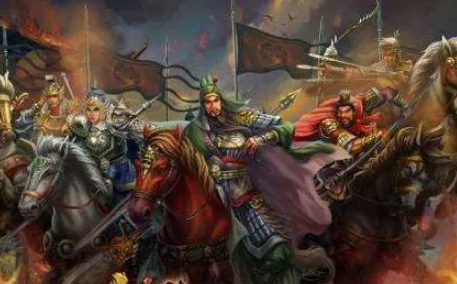In Chinese history, the Shuhan Dynasty of the Three Kingdoms period is renowned for its unique geographical location and historical role. The reason why Shuhan is called "Shuhan" involves geographical factors, historical origins, and cultural inheritance.

The term "Shu" originated from an ancient name for the Sichuan Basin. Surrounded by mountains and with a strategically important terrain, the Sichuan Basin has been known as the "Land of Abundance" since ancient times. During the Spring and Autumn and Warring States periods, the state of Shu was established here, and hence the term "Shu" was used to refer to this region. The term "Han" refers to the Han Dynasty, which represented a powerful dynasty in Chinese history and is a symbol of the Chinese nation.
The reason why the political power established by Liu Bei was called "Shuhan" is that among the three political powers of Wei, Shu, and Wu during the Three Kingdoms period, he claimed to inherit the bloodline of the Han Dynasty and emphasized his legitimacy. When Liu Bei established his political power, he claimed to restore the Han Dynasty and called himself the King of Hanzhong. Later, when he declared himself emperor, he used "Han" as the name of his country, indicating that he was the legitimate heir of the Han Dynasty. His ruling center was located in the ancient Shu region, hence the name "Shuhan".
From a political perspective, the title "Shuhan" also reflects the balancing act of Liu Bei's regime against the other two states. In the situation of the Three Kingdoms, Cao Wei controlled the Central Plains, Sun Wu controlled the southeast coast, while Liu Bei used the Shu region as a foundation to form a triangular balance with them. Therefore, "Shuhan" not only describes the geographical location but also defines the nature of the political power.
In addition, the title "Shuhan" also carries profound cultural significance. In traditional Chinese culture, the Shu region has become a sought-after place for scholars and poets due to its unique geographical environment and rich historical culture. Poets such as Du Fu and Li Bai from the Tang Dynasty wrote poems depicting the scenery of Shu. Therefore, "Shuhan" is not only a geographical concept but also a cultural symbol carrying rich historical and cultural connotations.
In summary, the reason why Shuhan is called "Shuhan" is that this title incorporates multiple factors of geography, history, and culture. It not only refers to the geographical location of Liu Bei's regime but also serves as a political declaration of its inheritance of the legitimate line of the Han Dynasty. It is also a testament to the profound cultural heritage of the Shu region. The title of Shuhan not only witnesses the rise and fall of a dynasty but also reflects the complexity and diversity of ancient Chinese society.
Disclaimer: The above content is sourced from the internet and the copyright belongs to the original author. If there is any infringement of your original copyright, please inform us and we will delete the relevant content as soon as possible.
































